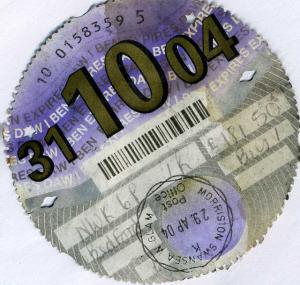Many members of the public aren’t necessarily aware that the paper road tax disc is due to become obsolete on 1st October 2014. Recent research suggests that nearly half of UK drivers have no idea that this change is due to come into effect, with many more uncertain of what the changes actually mean for them.
There has been some criticism from motor traders that the imminent changes have not been explained very well (see our previous news post).
So here is a quick and easy guide to what is happening, and why.
What is going to change?
The DVLA is no longer issuing paper tax discs to display in your vehicle’s windscreen. Vehicles will still need to be taxed as before, but there is no longer a requirement to display a tax disc.
Tax can be paid for online via the DVLA website. Motorists who do not have access to the internet can still pay at Post Offices.
Tax is still valid for either 6 months or 12 months, but those opting for 12 months will have a new monthly payment option available. A Direct Debit can now be set up for all of these payment options.
This could make purchasing vehicle tax easier for those on a tight budget by spreading their payments, although monthly payments are subject to a 5% surcharge.
The Direct Debit option is available from 1st October 2014 online, and from 5th October onwards in Post Offices.
How does this affect me as a motor trader, buying and selling vehicles?
The most obvious change is that, from 1st October, tax will no longer be transferred with the vehicle. This is to stop sellers from advising that there is more remaining tax on the vehicle than there actually is – with no visual check to prove otherwise.
The seller is responsible for advising the DVLA that the owner of the vehicle has changed, and will face a fine if they do not do so. However, it is in the interests of the seller of the vehicle to do this, as they can claim a refund for any full months’ tax that remains on the vehicle (and obviously will not be liable to tax the vehicle in future).
My current road tax doesn't expire for some time. Do I need to do anything?
No, although there is no longer a need to display the tax disc in the windscreen, so it can be removed if you wish.
The current road tax will remain valid until the expiry date. You can then renew it using the new system.
Does this affect my insurance? What about the MID?
The change in vehicle tax arrangements is not related in any way to your insurance, or to the MID.
As was the case before, if you buy a vehicle, it needs to go on to the MID as soon as possible to prove it is insured. If you sell a vehicle, it needs to be removed from the MID. Valid insurance is still required to drive a vehicle on the road – nothing has changed in that regard.
Are there any changes to which vehicles need to be taxed?
No – any vehicle that needs to be taxed now will need to be taxed in future. The only changes to the purchase of tax are spelt out above.
How can I check if my vehicle is properly taxed?
The DVLA’s Vehicle Enquiry system will show whether a vehicle is taxed or not. It will also show when the MOT on the vehicle is next due. As before, a reminder will be sent when tax is due to expire.
Why the changes? Will they help ordinary motorists?
The DVLA has a database of taxed vehicles. With Automatic Number Plate Recognition (ANPR) cameras, police can identify untaxed vehicles without the need to see a paper tax disc, so there is no need for them anymore.
Current figures indicate that less than 1% of motorists fail to tax vehicles on time, but there is still room for improvement.
Paying by Direct Debit will help those who forget to pay on-time at present, or spread the cost for those opting for monthly payments to make it more affordable in future. This in turn should further reduce the number of untaxed vehicles on the road. Insurance premiums might also fall in the long-term as a result of this.
Businesses can also benefit from reduced administration costs, according to the DVLA.








